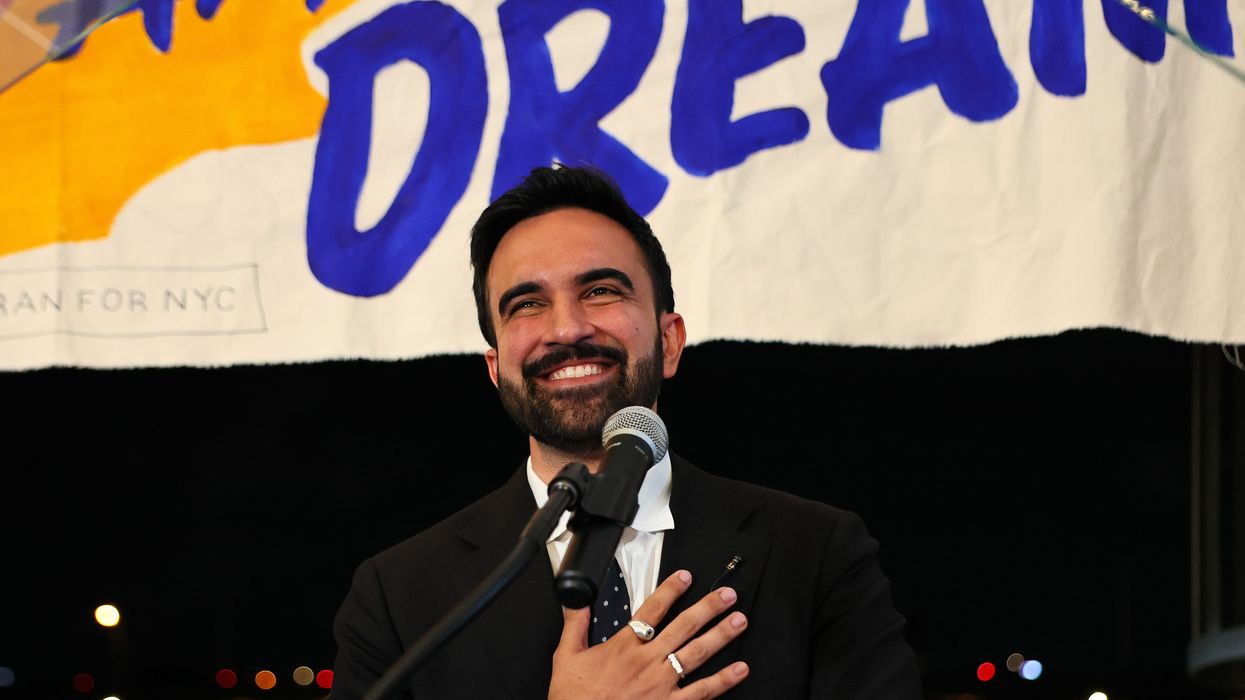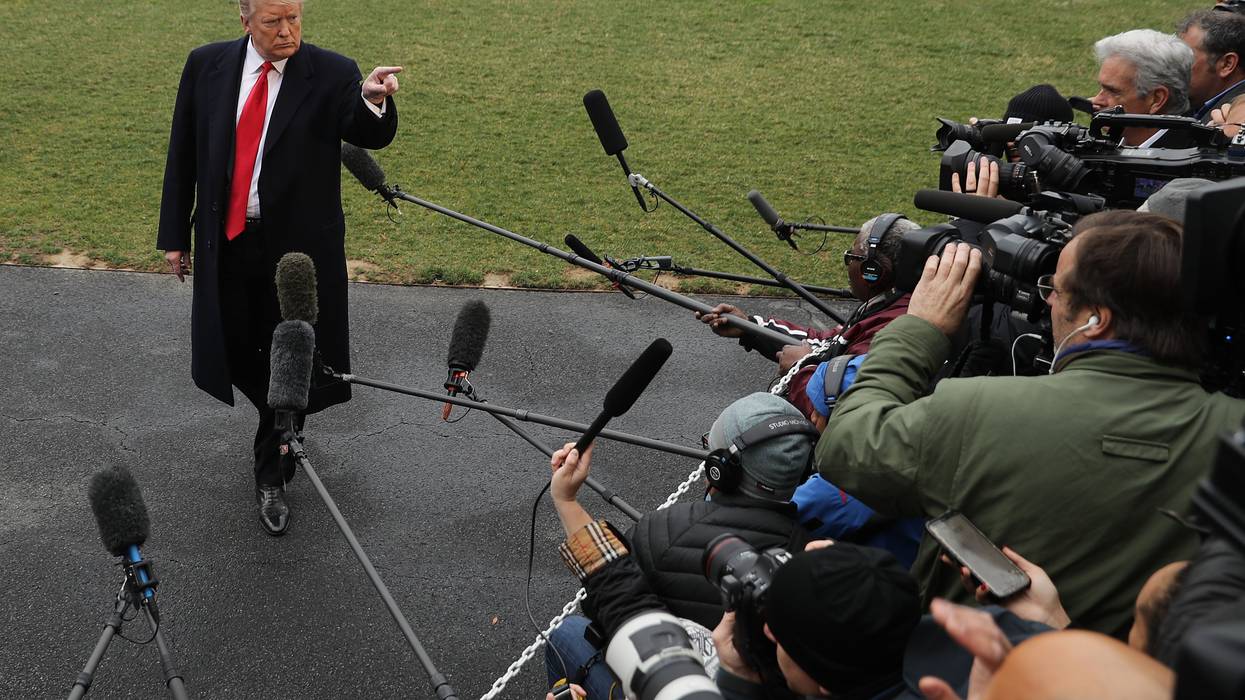You can see it almost daily – just this past week alone in a condescending article about Justice Ketanji Brown Jackson’s brave defense of democracy, and a celebratory story about Trump’s achievements that likened dissenting views to “asterisks” on his legacy.
Under what other circumstance could a story that breaks so many of the Times’s own rules have won the approval of senior editors?
And you can trace it back to the very top: to editor Joe Kahn and his boss, publisher A.G. Sulzberger. As I’ve exhaustively chronicled in my coverage of the New York Times, the newsroom is constantly under pressure from its leaders to prove that it is not taking sides in politics — or democracy, for that matter. And because printing the truth is seen as punching right, that requires expending a lot of effort to punch left. Punching left becomes the holy grail.
I mean think about it. Under what other circumstance could a story that breaks so many of the Times’s own rules have won the approval of senior editors?
Why else would the Times, which notoriously refuses to respond to critics, have issued a ten-tweet defense of its actions? Why else would Kahn have praised the story in Monday’s morning meeting?
Consider everything that was wrong with the article. It’s a long list.
- You don’t print articles based on hacked data unless they are truly newsworthy. The fact that Mamdani, whose childhood was spent in Africa, checked several boxes including one for “African American” on a failed college application when he was 17 is not newsworthy. Its only value is to his political opponents, to employ as a scurrilous attack.
- You identify the source of the hack as fully as possible, so the readers can judge their motives. You don’t cover up the source’s identity and motives, like the Times did – you expose them. The source, as quickly became clear, was a noted eugenicist named Jordan Lasker.
- You don’t use the format of an attack story unless there’s a legitimate grievance. (First paragraph: Mamdani says X. Second paragraph starts with the word “But.”)
- You don’t hide behind a headline that says the disclosure you just made “raises scrutiny“. It’s either legitimate news or it’s not. (And it isn’t.)
- You don’t bury key information. Here, that Mamdani wrote in “Ugandan” as a way of explicating his checked box. (He was born there.)
- You don’t engage in racial policing. That is socially harmful and highly unseemly, especially coming from such a white-dominated institution.
- You don’t publish political stories whose lead byline is a free-lance writer who is a culture warrior. Benjamin Ryan is well known online as a critic of trans healthcare and trans reporters.
- You don’t rush to print in order to “scoop” a right-wing culture warrior. Semafor reported that Times editors hurried to greenlight the article because they had heard Rufo was also pursuing the story. That should actually have made them hesitate to print, rather than hurry.
There’s more about the Mamdani piece in this excellent article by Liam Scott in the Columbia Journalism Review.
Parker Molloy, in her newsletter, points out:
When Times columnist Jamelle Bouie had the temerity to post “i think you should tell readers if your source is a nazi,” he was apparently forced to delete it for violating the paper’s social media guidelines. Think about that for a moment. The Times will protect the anonymity of a white supremacist, but will silence their own Black columnist for accurately identifying him.
And Guardian media columnist Margaret Sullivan , who previously worked as the Times' public editor, concludes that “this made-up scandal” — combined with a nasty pre-election editorial – makes the Times look “like it’s on a crusade against Mamdani.”
The Times did its own self-serving follow-up article here, reporting that its disclosure had “provoked sharply different reactions.”
It also published — in what the New Republic’s Jason Linkins called an attempt to “reverse-engineer a pretext for their Mamdani piece” — a query asking readers what they think of racial categories.
The Need for a Public Editor
When a Times article sets off an understandable explosion of media criticism, like this article did, the response would ideally come from a public editor, or ombud, whose job is to explain what happened and independently assess whether the Times was at fault or not. There would ideally be some learning.
Parts of the Times operation remain brilliant, most notably its investigative journalism and Cooking. But its coverage of anything remotely political is poisoned by its obsession to prove its neutrality by taking cheap shots at the left.
Sadly, The Times eliminated the position of public editor eight years ago. The publisher at the time said “our followers on social media and our readers across the Internet have come together to collectively serve as a modern watchdog, more vigilant and forceful than one person could ever be.”
So on Saturday, the response came from the Times’s hackish “assistant managing editor for standards and trust” Patrick Healy. To say that he does not inspire trust is an understatement.
Healy, who until May was the deputy opinions editor, drove the Times’s excellent columnist Paul Krugman to quit his job. Prior to that, he led a series of right-leaning citizens panels.
He was the newsroom’s politics editor during the 2020 presidential election, and the unapologetic leader of the paper’s “but her emails” coverage.
In short, he seems to revel in trolling the libs.
In his tweets, Healy focused on the article’s “factual accuracy” and he recognized concerns about how the source was identified. But he refused to engage with the concerns that the article was not newsworthy or that its sourcing was repugnant.
“The ultimate source was Columbia admissions data and Mr. Mamdani, who confirmed our reporting,” Healy wrote defensively.
That he is a rising star at the Times – indeed, said to be among the possible successors to Kahn – tells you everything you need to know about what’s wrong there.
Parts of the Times operation remain brilliant, most notably its investigative journalism and Cooking.
But its coverage of anything remotely political is poisoned by its obsession to prove its neutrality by taking cheap shots at the left, no matter the cost to its obligation to accuracy and fairness.
This piece first appeared on Froomkin's website, Press Watch, and appears at Common Dreams with permission.




